Keynotes
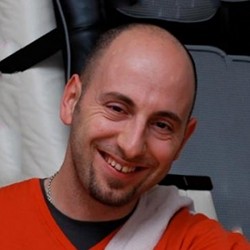 |
Vasco Duarte |
| Currently an Agile Coach at Avira, Vasco Duarte is an experienced Product and Project Manager. Having worked in the software industry since 1997, Vasco has also been an Agile practitioner since 2004, he is one of the leaders and catalysts of Agile methods and Agile culture adoption at Avira and previously at Nokia and F-Secure.Vasco’s contributions to the development of the Software industry and professions can be read at his blog. |
“How to improve software project estimates – The #NoEstimates view”
“Since 1968 – the year of the Garmisch conference that originated the term “software crisis” – our industry has been struggling with predictability and estimation. We all know of the horror stories of software project run amok with unbelievable cost and time overruns. Can we do it better? Can we estimate better software projects?”
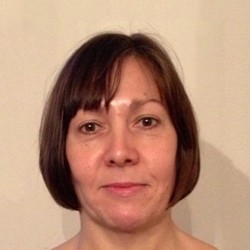 |
Rachel Davies |
| Rachel Davies is co-author of the first “Agile Coaching” book and currently works as Agile Coach at Unruly Media, the leading global platform for social video marketing. She is a popular invited speaker at industry conferences worldwide.Rachel has over 20 years experience in software development playing a variety of roles from software developer to manager. She became an agile practitioner in 2000 and draws upon experience with a wide range of agile approaches including Lean/Kanban, Scrum, and XP.Rachel shares her latest thinking about Agile product development and coaching on her blog at http://agilecoach.typepad.com/ and over Twitter @rachelcdavies |
“Coaching Teams Through Change”
The wonderful thing about coaching teams over a long period is getting time to work through a wider range of challenges and seeing them work through all the highs and lows. After the excitement of the “Agile honeymoon”, weeks roll into months and months into years. You may find maintaining momentum on learning and growth can be tough — especially when you’re there all the time. Once the initial novelty wears off and you risk become part of the furniture, it’s easy for a team to defer making changes and for a coach to lose their freshness and zest. I’ve found the secret lies in shifting to more one-on-one coaching and taking a backseat in team discussions. Come to this session to hear ideas for keeping your coaching approach fresh!
Invited Talks
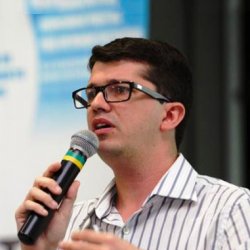 |
Alexandre Magno |
| Alexander Magno founded Adaptworks in 2008, soon after becoming the first Certified Scrum Trainer in Brazil. He accumulated profound experience applying Scrum and other Agile methods for different businesses areas such as: start-ups, financial, telco, IT organizations, airlines companies and ISVs.Passionate on learning, Magno is now writing the ‘Learning 3.0’ book which addresses the importance of emergent learning in the life of creative workers, agile teams and great companies. With this focus, he set up Happy Melly Brazil, a legal entity of Happy Melly.You can find more information on Learning 3.0 at www.learning30.co, and following Alexandre on Twitter @axmagno |
“One more shot – how to promote daily learning in our organizations”
It’s a fact, we are living in the ever increase complexity times, as “change agents”, we still want organizations and their leaders to change their mindset so they can better perform within such circumstances. Now, think about it, if change and learning walk hand in hand, in order to enable organizations to achieve that goal, shouldn’t we radically change the way we’re educating and advising those organizations and their members? In this conversation, I want to “provoke” us to understand that in order to succeed in complex systems, the existent models for knowledge development will have to change, and a lot! Books, lectures, training courses, consultative approaches are not enough anymore. The new era requires workers, teams and organizations to construct knowledge, not acquire it, and the best way to do that is by an emergent and collaborative approach. Meet Learning 3.0!
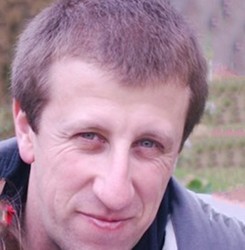 |
Ademar Aguiar |
| Ademar is a pragmatic software engineer with experience on different software-related activities, ranging from research, training and consulting, to product ideation, design, and management. He is a Professor at Faculty of Engineering of University of Porto (FEUP) and a researcher at INESC TEC, since 1989. After learning about Adaptive Software Development (ASD) and being evangelized on XP at EuroPLoP 1997, he helped several teams on applying XP and Scrum to their own contexts, both startups and large companies, since 2001, and later to academia. As a ScrumPLoP participant, he has been working together with global Scrum experts and practitioners, with the goal of documenting the best practices of Scrum. Of the most recent collaborations related with agile and Scrum adoption, it deserves special mention the MOVERCADO product, for PSI, a very large global health organization dedicated to improving the health of people in the developing world. |
“Balancing Uncertainty, Urgency, and Importance with Value, Time, and Budget”
Movercado is a mobile technology-based eco-system that creates powerful retailing, communication and payment structures on bottom-of pyramid markets leading to increased efficiency of aid distribution and higher real economic added value on these markets. Despite the very well defined vision of the Movercado eco-system, its innovative and disruptive character has been challenging the development of the underlying technical platform: what should be done first? What is more urgent? What is more important to get done next? Which features are more valuable? Who can contribute with all the details needed to build the solution? These are typical examples of questions that a product manager must be always ready to answer, all the time, in order to have a successful solution at each important date of the product roadmap.
In order to cope with the high levels of uncertainty, ambiguity, and dynamism of requirements, the Movercado team (visionaries and development team) agreed on defining an agile development process based on a flexible contract. We will describe the agile process in use for Movercado platform development, starting from its initial version, back in January 2013, and the most important how’s and why’s of its successive refinements made until today, to deliver the highest value for the eco-system, on time and on budget.
Talks
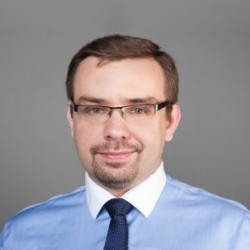 |
Lucas Olczyk |
| Lucas is an experienced Agile coach, currently serving as a Scrum master at Mobica. While gathering ten years of diversified experience in IT, ranging from universities to large telco corporations, he found out that working with people felt better than engineering. He kept switching, from administration to programming to management to inspiring. Being passionate about psychology helped him provide unique experience through coaching, from personal via organizational to executive level. |
“Agile Revolution Reboot”
Have you ever felt, that, when revolution is over and dust falls, everything feels the same? That Agile Manifesto is just that, a manifesto, with no practical application? That what your team calls Scrum is mere mechanics, with no real meaning behind it? If any of these feel familiar, you might need to be inspired. Lucas will dig into vision, intentions and solving big problems with small solutions.
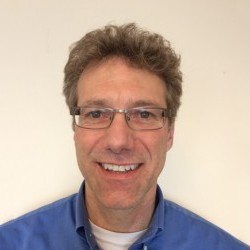 |
Wayde Stallmann |
| Wayde is currently an Agile coach at AT&T. He has over 20 years in software development, concentrating on Java since 1999. Wayde became an XP practitioner in 2001. He is ScrumMaster of the 2nd team to achieve Gold level certification from AT&T. He has master’s degrees in both Computer Science and Engineering Management. He is also a Sun Certified Java Programmer (SCJP 1.1, 1.2, 1.6) and Certified Scrum Professional (CSP) |
“Building Empowered Teams”
Start daily standup meetings with a 3 minute improvisational warm-up. These warm-ups are the same ones used by Improv teams in order to meet their goal of Building an Empowered Team. The exercises practice the art of Collaboration, Creativity, Communication and Trust. These qualities are the identical components we want to build into our Scrum teams.
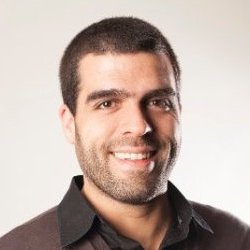 |
Pedro Torres |
| I’m a Delivery Manager @ Blip, in Porto, Portugal. I’ve started doing / being agile since 2010. I’m an experience Scrum Master and Agile Coach. I also have experience acting as a Scrum Product Owner. I’m passionate about scrum, agile and all the tools that can help teams deliver value to their customers. I’ve started my career as a developer but I had always an “appetite” for managing and facilitating teams and projects. I’ve already presented in a couple of events (e.g. Agile & Scrum Portugal 2013) so I’m looking forward to participate in this one. |
“Pair Programming”
Pair programming is probably the most well known eXtreme Programming practice… but how many companies really use it?
In Portugal I don’t know any company (maybe, with luck, just a hand full) doing pair programming but abroad you have a big adoption.
Why is that?
Is Pair programming:
– effective?
– expensive?
– great for coders?
– fun?
– tiring?
– thrilling?
– worth it?
What about code reviews? Should I do code reviews if I’m pair programming?
What’s in it for me?
I intent to tell you about my experience with Pair Programming… the Good, the Bad and the Ugly.
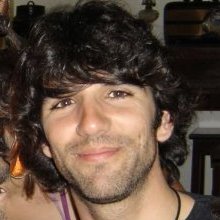 |
Nuno Marques |
| Nuno graduated from IST in 2005 and moved to England in 2007 where he has been working in agile teams. He was involved in the Software Craftsmanship movement that lead to the writing of the manifesto. Nowadays, he is more focused in helping the UK public sector and Fortune 500 companies successfully deliver agile projects. |
“Continuous delivery in the UK public sector”
Nuno explains the challenges and road blocks that teams can face when trying to implement continuous delivery in organisations as conservative as the ones in the public sector and how you can overcome them.
Sponsored Talks
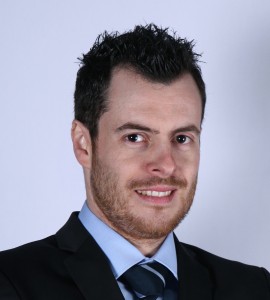 |
Miguel Barroso |
| Miguel Barroso has over 12+ years of experience working on IT Software Development projects. He’s a certified Project Management Professional (PMP®) granted by Project Management Institute (PMI®) and a Certified ScrumMaster (CSM®) granted by Scrum Alliance. Miguel holds a Post-Graduation in Project Management and a License Degree in Systems and Computer Engineering.Most of his professional experience was in leading teams and managing projects in different types of markets namely in Semiconductor, Manufacturing, Finance, e-Commerce and ERP. He was also responsible for setting up and leading a maintenance unit in one of the top Portuguese banks for supporting and evolving critical applications with demanding SLA services. |
“Scrum @ Primavera”
Implementing Scrum at Primavera which is one of the top portuguese companies and share the steps taken to introduce this methodology, the main challenges that we’ve faced and ways to overcome those challenges
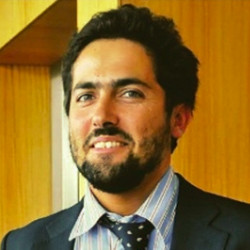 |
Pedro Castro Henriques |
| CEO and co-Founder of Strongstep. Began his career 16 years ago as a Software engineer at Q-Labs/Ericson and soon became a consultant in software engineering with experience in the health and information system working in 9 European countries. After his international experience returned to Portugal and founded alumniei.fe.up.pt Oporto software engineering Alumni association (over 1600 software engineers). Afterwards underwent further specialization in process improvement, implementation and certification in software qualtity in SEI CMU (Software Engineering Institute at CMU). Extremely committed to innovation and entrepreneurship, co-founder of strongstep.pt and portic.pt, 3decide.com, brygghusetfinn.se currently assuming duties as CEO of Strongstep and President of Portic. Spoke at TEDxOporto 2010. Presented process improvement papers at SEPG Dublin; Madrid, Munich, Porto, Check Republic; Quatic; TSP Symposium Florida; Interviewed by Exame Magazine about Software Quality in Portugal. Lecturer at FEUP in the Services Management and Engineering Master. |
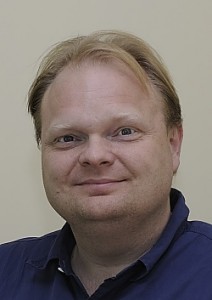 |
Michael Koester |
| Michael is a Visual Studio/ALM and developer technologies specialist, covering Western Europe countries for Microsoft. He focuses on Microsoft’s next-generation application platform technologies and developer tools and speaks regularly at events and conferences about topics like Agile Lifecycle Management, Windows development , Web development, Windows Azure, testing and anything related to Visual Studio and TFS. |
“Removing Barriers between Development and Operations”
In today’s world of rapid development cycles developers are expected to ship code very frequently. Increasingly rapid release cycles also mean that customer and user needs are met earlier and faster. Change is the developer’s friend. On the other hand, IT operations is still expected to make sure no customer is adversely affected by changes. Change can be their enemy. Where Devs meet Ops there are often significant tensions. To address this, the DevOps movement has focused on automating as many build/store/test/deploy tasks as possible. In this session, we will explore Microsoft’s take on DevOps, the tools we have to help integrate Dev and Ops and also talk about the collaboration between Microsoft Open Tech and the Open Source community to make DevOps tools are available to everyone, regardless of their development environment or platform.
Industry Talks
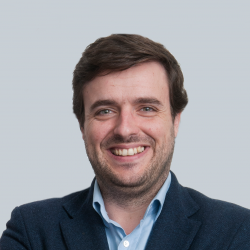 |
Rui Barreira |
| Rui Barreira is an experienced Software Architect and Product Manager. He has worked in a variety of projects (from big corporations to start-ups) since 2005 and currently is an Senior Delivery Manager / Agile Coach at Vortal where he is helping the development team to achieve excellency in software development through agile while experiencing an accelerated growth.He has also been an agile enthusiast since 2008, practitioner since 2011 and is one of the leaders and sponsors of the agile culture within Vortal and previously at QUiiQ.He is a keen scuba diver and loves everything which is related to sea. |
“The Story of Agile @ Vortal”
By the end of the year 2012 a new business unit appeared at Vortal, the IT Development. At its first stage we asked ourselves: how are we going to define our requirements, how are we going to develop software and how are we going to deliver it in a corporate and waterfall based business environment? Agile is the way to go, we said! And so we started our version of agile based on Scrum and XP.
After three months we had one team, geographically distributed, working together with an agile mindset and we shipped 14 releases in just under 10 months (100+ stories delivered). We were at the end of the summer of 2013 and a new problem arouse: multiple teams needed and fast paced growth went into place… Let’s scale up our methodology!
Now, in the middle of 2014 (about 30 Software Engineers) we are still experimenting and implementing continuous improvements every three months, fine tuning our methodology and we are way better than in the end of 2012, but there still is a path full of stones right in front of us!
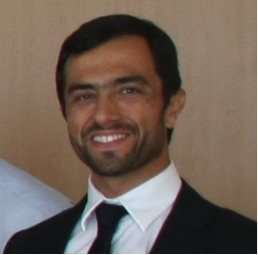 |
Pedro Gama |
| Pedro Gama currently works at Critical Manufacturing as a Program Manager where he joined after over fifteen years career on software development industry. He is a certified SCRUM master and has been using agile for managing his projects since 2010.Very enthusiastic when it comes to SCRUM, he strongly promotes its usage within his company not only by sharing experience but also defining and standardizing processes for projects that decide to follow similar working methodology.He’s a passionate runner. Besides sprinting on software development iterations he also loves to sprint with sneakers on his feet. |
“Agile with Services”
Critical Manufacturing is a Portuguese company created in 2009, that provides software solutions which enable the tracking of all the steps involved in the manufacturing of products such as photovoltaic cells and panels, computer memory, mobile phone chips, chip cards, wireless communication products, x-ray devices etc.
Back in 2010, Critical Manufacturing was already using agile for managing its Product development. But how to apply it also on Maintenance projects?
Working with customers very used to and keen on waterfall development methodologies, reluctance for a change was extremely high. In less than 2 years we switch to 100% agile working mode. This talk will start contextualizing the work involved on some of Critical Manufacturing Services projects and how gradually they fitted on an agile working mode framework.
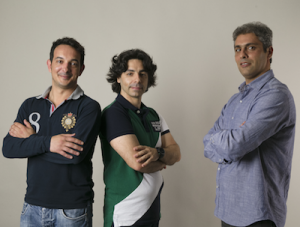 |
Alberto Campinho & Bruno Teixeira & Miguel Sousa |
AlbertoAlberto is currently Agile Coach at Farfetch. Before joined the company on January 2013, he founded Maincheck and worked at Microsoft and MobiComp. With 14 years of experience on IT, he already acted as Developer, Project Manager, QA Team Lead and Scrum Master. Bruno“We shall require a substantially new manner of thinking if mankind is to survive.” – Albert Einstein MiguelMiguel Sousa adopted, since earlier ages, technology as a way of life; and starting as a developer allowed him to go through all stages and levels of software development! One of his main objectives is transforming software engineering into an art! With the focus on improving the current state of software engineering, from a purely traditional and old-style manner onto a truly efficient and human vision way how software should be created |
“Sprint Length: How to be quicker to market”
Living in a world of amazing competitiveness and constant change, the E-commerce industry is every day challenged to improve the time to market in order to react to customers’ needs and competitor behaviour.
We will talk about at what extent the sprint length impacts time to market.
Workshops
 |
Vasco Duarte |
| Currently an Agile Coach at Avira, Vasco Duarte is an experienced Product and Project Manager. Having worked in the software industry since 1997, Vasco has also been an Agile practitioner since 2004, he is one of the leaders and catalysts of Agile methods and Agile culture adoption at Avira and previously at Nokia and F-Secure.Vasco’s contributions to the development of the Software industry and professions can be read at his blog: http://SoftwareDevelopmentToday.blogspot.com |
“Managing to Innovate Agile Product Management”
In today’s world we are constantly confronted with the message that the competition is breeding down our necks that the market and environment are changing and we need to change with them.
And most importantly, we are told that we need to listen to our customers to be able to provide the right products.
We as a Product Managers need to be able to see beyond the basic product decisions, e.g. do we add feature A or feature B? We need to think beyond the silo of our function to be able to drive innovation into our products.
In this one-day session we will discuss how Product Managers and agile teams can become agents of innovation in an agile product development environment. We will cover:
- Setting the vision for the product. Key steps and content to make successful products
- Metrics that matter: How to measure product success?
- Increasing product sales: Using concrete practices to increase product revenue
 |
Rachel Davies |
| Rachel Davies is co-author of the first “Agile Coaching” book and currently works as Agile Coach at Unruly Media, the leading global platform for social video marketing. She is a popular invited speaker at industry conferences worldwide.Rachel has over 20 years experience in software development playing a variety of roles from software developer to manager. She became an agile practitioner in 2000 and draws upon experience with a wide range of agile approaches including Lean/Kanban, Scrum, and XP.Rachel shares her latest thinking about Agile product development and coaching on her blog at http://agilecoach.typepad.com/ and over Twitter @rachelcdavies |
“Coaching Agile Teams”
When you come to a conference like AgilePortugal, you pick up new ideas that you’d like to try when you get back to work. However, you may feel like you hit a brick wall when it comes persuading your team to try the idea out. Resistance is very common in organisations large and small.
As an agile coach, I’ve learned that forcing adoption of new practice results in minimal compliance. Teams who don’t want to try the new approach often fall back to old ways of doing things.
Come to this workshops to learn some tips for getting to the heart of resistance and idea on how to dissolve barriers to adopting new working practices. We’ll also do some practical exercises in Force-Field Analysis to generate ideas that get your team moving in the right direction.
 |
Alexandre Magno |
| Alexander Magno founded Adaptworks in 2008, soon after becoming the first Certified Scrum Trainer in Brazil. He accumulated profound experience applying Scrum and other Agile methods for different businesses areas such as: start-ups, financial, telco, IT organizations, airlines companies and ISVs.Passionate on learning, Magno is now writing the ‘Learning 3.0’ book which addresses the importance of emergent learning in the life of creative workers, agile teams and great companies. With this focus, he set up Happy Melly Brazil, a legal entity of Happy Melly.You can find more information on Learning 3.0 at www.learning30.co, and following Alexandre on Twitter @axmagno |
“Learning Canvas – A shot of emergent learning for creative workers”
I In this session participants will have a unique experience of collaborative learning that will be facilitated through the Learning Canvas, a tool of Learning 3.0 (www.learnin30.co)
Topics related to Agile will be problematized in small groups, then each participant will choose the topic on which you have interest or experience and join a group. In each group, a facilitator will lead discussions around opinions and experiences related to the subject seeking various alternatives to solve that problems. The learning will emerge throughout the discussions and the outcome of that will be transformed into an action plan.






Agile Portugal 2014: even better! | software & beyond | Ademar Aguiar
Jun 02, 2014 @ 22:22:53
[…] will talk about how we are balancing uncertainty, urgency, and importance with value, time, and budget”, at MOVERCADO development […]